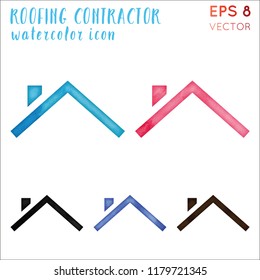Have You Thought About Why Your Paint Application Fell Short Of Your Vision? Check Out The Regular Pitfalls That Could Be Preventing Your Success
Have You Thought About Why Your Paint Application Fell Short Of Your Vision? Check Out The Regular Pitfalls That Could Be Preventing Your Success
Blog Article
Material Created By-Carpenter Weinreich
When you're preparing to repaint your walls, it's easy to forget some vital details that can make or damage your project. You could believe choosing any type of paint will certainly do, or that surface area preparation isn't required, yet these choices can bring about discouraging outcomes. https://drive.google.com/drive/folders/1KrQ1zPwoh6XZ9wT0yfSHybUcKzPC8uve?usp=drive_link 'll intend to prevent usual pitfalls like overwhelming your brush or hurrying the drying time between coats. Recognizing these errors can conserve you effort and time, however there's even more to take into consideration if you desire a perfect coating that lasts. Allow's explore what you could be missing.
Picking the Incorrect Paint
Selecting the ideal paint is vital for accomplishing a smooth, professional finish on your wall surfaces. If you choose the wrong kind, you'll quickly find yourself dealing with issues like peeling, fading, or uneven color.
Beginning by thinking about the paint's base. Water-based paints are fantastic for simple clean-up and fast drying out, while oil-based options are ideal for durability in high-traffic locations.
Next, think of the finish. Matte coatings conceal blemishes well but can be hard to clean. Satin or eggshell finishes supply a balance in between visual appeals and washability, making them suitable for the majority of rooms.
For areas susceptible to wetness, like bathroom and kitchens, choose a semi-gloss or gloss paint, which withstands mold and mildew and mildew.
Don't neglect to examine the shade. Examination examples on your wall surfaces to see how they search in different illumination throughout the day. Illumination can dramatically alter exactly how a shade appears, so this action is crucial.
Skipping Surface Area Preparation
One of the greatest blunders home owners make is skipping surface preparation before paint. You may believe you can just get a brush and start, yet that'll result in a less-than-stellar finish. Correct prep is critical for a smooth and enduring outcome.
First, examine your wall surfaces for any type of blemishes like cracks, openings, or peeling paint. Filling those voids with spackle or caulk ensures an uniform surface area.
Do not forget to sand https://www.realsimple.com/home-organizing/home-improvement/painting/painting-mistakes once it's completely dry, as this creates a better surface area for the paint to abide by.
Next off, tidy your wall surfaces to eliminate dirt, grease, and grime. A simple mixture of soap and water can do marvels. If your wall surfaces are specifically unclean, consider utilizing a degreaser.
Finally, using a guide is commonly ignored yet can considerably improve the end result, especially if you're repainting over a darker color or a surface area that's been previously repainted.
A good guide improves attachment and helps cover any spots.
Improper Application Methods
Using paint with the incorrect strategies can bring about unequal coverage and a frustrating finish. One typical mistake is using the wrong type of brush or roller. See to it you select a tool that suits the paint kind and the surface structure. For smooth wall surfaces, a fine-nap roller functions best, while distinctive surface areas may require a thicker nap.
Another issue is applying way too much paint at the same time. Rather, use thin, even coats. This not just stops drips but likewise guarantees much better adhesion. If https://sites.google.com/view/triangle-pro-painting observe runs, do not panic-- just take a brush and smooth them out instantly.
Additionally, remember to maintain a damp edge. This implies overlapping your strokes while the paint is still wet to avoid visible lines.
Ultimately, prevent painting in straight sunlight or high humidity, as this can cause the paint to dry as well rapidly, resulting in blistering.
Verdict
To sum it up, avoiding usual painting blunders can make a substantial distinction in your job's result. Constantly pick the appropriate paint for the task, never ever skip essential surface area preparation, and make use of proper application techniques to make sure a smooth finish. Take your time between layers and don't overload your brushes or rollers. By complying with these ideas, you'll achieve a professional-looking outcome that you can be happy with in your house. Happy paint!
